As you get older, your metabolism naturally slows down. The fast declines according to new research occurs after age 60. That's just part of the process, but it can have a big impact on how much weight you gain and lose. Fortunately, there are things you can do about it.
What age do metabolism slow down?
Metabolism varies from individuals. This could be due to genetics, diet, and physical activities. However, here's where the majority of people start to notice it:
Late 20s to Early 30s: Metabolism typically starts to slow down gradually during this period. This slowdown is often associated with a decrease in muscle mass and physical activity levels compared to earlier years.
40s and Beyond: The rate of metabolic decline may become more noticeable as people enter their 40s and beyond. This can be influenced by hormonal changes (e.g., menopause in women), reduced physical activity, and changes in dietary habits.
You don't have to accept slower metabolism as you age.
You don't have to accept slower metabolism as you age.
Metabolism is a term that refers to the chemical processes in your body. Your body uses oxygen and other nutrients like carbohydrates, proteins and fats for fuel by burning them up through these chemical reactions. Metabolism affects many aspects of your health, including weight loss and weight gain, so it's important to understand what exactly it is—and how you can use it for good!
It's not just your metabolism that changes with age, but your body size and body weight.
As you age, your body changes in all sorts of weird and wonderful ways. Your metabolism slows down according to new research at age 60 and declines by 7% per decade. You can review the research here found on Scientific American. Keep in mind beyond just the research it's what you do or don't do that impacts your metabolism before your retirement years. For example, you begin to lose weight as well as muscle tissue before that if you're not as active... that in turn decreases your metabolism. You also see an increase in fat, which can be a problem if you don't know how to deal with it.
But there are some things that can help slow down this process:
- Increase your physical activity level by being more active every day (or at least get on track for doing so).
- Eat more fruits, vegetables and whole grains than before—these foods contain fiber that helps keep hunger at bay while also keeping your digestive system running smoothly by helping it move along through the intestines more efficiently (this is why fiber-rich foods such as oats or barley might help reduce constipation).
- Aside from Metavo, consider taking supplements such as fish oil or flaxseed oil; these may help boost energy levels while reducing inflammation throughout our bodies' systems—which means less cravings for sweets/sweets!
The lifestyle changes you make in middle age can affect your metabolism the rest of your life.
The lifestyle changes you make in middle age can affect your metabolism the rest of your life and set you up right before you hit at 60 year mark.
Now that we've covered what happens when you're young, let's talk about what happens when you get older.
If you stop exercising, fat will likely replace muscle mass.
If you stop exercising, fat will likely replace muscle mass. That's not the ideal body transformation we aspire to.
If you don't use it, you lose it! Muscle loss is inevitable as we age (and yes, even if you're still a young-at-heart), but it can be slowed down by increasing exercise intensity or frequency. After all, 50 is the new 30!
For example: if someone does a cardio workout once per week for 45 minutes at 80% capacity (that's very hard), then they'll burn roughly 100 calories per minute during those sessions; meanwhile someone who spends just 10 minutes more each day doing some resistance training (e.g., lunges or squats) will burn 200 extra calories per hour over the course of 8 weeks—a significant difference in terms of overall calorie burning and a great way to elevate your BMR (Basal Metabolic Rate).
No matter your age, you need to exercise.
The benefits of regular physical activity are well documented: it improves cardiovascular health and decreases the risk for heart disease, stroke, Type 2 diabetes and cancer; it helps maintain bone density; it can help you manage stress; and it can improve sleep quality. Exercise also promotes a healthy weight by helping you burn calories. It's quite simple; less calories in than out and you're in a deficit. A calorie deficit means you lose weight.
Your focus should be on building muscle strength.
While it’s true that you can build muscle with weights, your focus should be on building strength.
You need to use your body weight to push through the rigors of exercise and make gains. Using light weights allows you to do more reps in less time, which means faster results. And since most people see no difference between lifting light or heavy weights—and think they’re getting better results just because they lift more total pounds—you can also use this technique as an excuse to avoid using heavy weights at all costs (which defeats the whole idea).
In addition to using body weight exercises such as squats and lunges as part of your routine, there are plenty of other options available too:
- Abdominal crunches – Sit on floor with knees bent at 90 degrees, feet flat on ground; arms outstretched above head (palms facing ceiling) ; hold contraction for 30 seconds; repeat 3-5 times per week.
- Push-ups – Lie face down on floor with hands under shoulders, legs extended behind you; keep head off ground and back straight; lower body until forehead touches floor; push back up into starting position; repeat 15 times per set.
- Dips – Sit on edge of chair, place hands on ground shoulder-width apart; walk feet forward until body is straight from shoulders to ankles; lower body until arms form 90-degree angle; push up into starting position.
You can build lean muscle mass with resistance training.
There's a lot of misinformation out there about how to build muscle mass. The general idea is to lift weights and build muscle, but that doesn't always end up working out as you might expect.
In fact, one of the biggest reasons people fail at their fitness goals is because they don't know how to do resistance training correctly. That's why it's important for everyone who wants to build lean muscle mass through exercise—whether they're trying to get into shape or just want more energy—to understand what resistance training is all about so they can make sure they're doing it right!
Resistance exercises are different than cardio exercises like jogging or running because they generate an increased amount of force on your muscles without using any extra energy from carbohydrates (like when running). This means that instead of burning off calories during the activity itself (like walking does), resistance training burns off more calories afterwords due primarily not only increased calorie expenditure but also increased fat oxidation - which means both higher amounts burned off overall per session/weekend workout cycle too!
Exercise is good for you at every age, for many reasons.
Exercise is good for you at every age, for many reasons.
- It can help you maintain a healthy weight.
- It can help manage your blood sugar levels and reduce the risk of diabetes or other metabolic diseases, such as heart disease or stroke.
- Exercise improves how well several hormones work in your body, which helps boost energy levels throughout the day as well as improve sleep quality. You'll also be less likely to develop high cholesterol, stroke or other health conditions if you exercise regularly; all three are linked to being overweight or obese.
- Studies have shown that people who exercise regularly tend to live longer than those who don't—and this benefit extends past retirement age: studies have shown that even middle-aged adults who start an exercise program will reduce their risk of death by about 25% within five years.
Thinner fat tissue
Your body is made up of two types of tissue: fat and muscle. Fat tissue contains adipose cells, which are fat cells. They also contain blood vessels, nerves and connective tissue that help regulate your body's metabolism and other functions like movement. As you age, your fat tissue becomes thinner because it loses its ability to store energy—and that means less fuel for your muscles!
As we age our ability to burn calories decreases as well as our ability to store them in the form of triglycerides (the main constituent of fats). Both factors can lead to weight gain over time if not addressed properly through dieting or exercise routines designed specifically around increasing metabolism rates (how many calories burned per day).
Changes in hormones
Hormones are chemicals that control many body processes. They're produced by glands, and then released into the bloodstream to travel to different parts of your body. When you're young, hormones help keep your metabolism running at its peak. But as you age, some of these hormones may slow down or even stop working altogether. This can lead to changes in weight and body composition—and even affect overall health!
Hormone levels change throughout life. Some examples include:
- Testosterone—the main male hormone responsible for building muscle mass during puberty and maintaining bone density after menopause (the end of menstruation). As we age, testosterone levels decline somewhat; however this doesn't happen right away so women may see more rapid changes than men do with age-related hormonal imbalances like low libido (sexual desire) or reduced muscle mass/strength as they get older.
Decreased sensitivity to insulin and glucose
It's important to understand that insulin is not just a hormone that helps your body convert food into energy. It also plays an important role in storing fat, especially in the liver and muscle tissue. Insulin resistance occurs when the body becomes less sensitive to insulin—and this can lead to weight gain and other health problems as well. Metavo can help improve insulin resistance in just weeks*
Insulin resistance has been linked with obesity, type 2 diabetes and heart disease; it's even thought that some cancers may be caused by high levels of glucose (sugar) circulating through our bodies without being burned up properly by cells' mitochondria (the powerhouses inside each cell).
The good news
The good news is that there are things you can do to slow down muscle loss and even reverse it.
- Maintain muscle mass by doing resistance training, which builds lean body mass and promotes fat burning.
- Eat a diet rich in protein and vegetables, which promote healthy metabolism and increase satiety (the feeling of fullness).
- Reduce your calories to lose weight if necessary, but don't starve yourself because this can lead to low energy levels and depression; instead focus on eating healthfully so you feel satisfied after meals—which aids weight loss efforts as well!
The bad news
You may be surprised to learn that your metabolism slows down eventually with age. Your body composition changes as you get older, and this leads to a drop in your basal metabolic rate (BMR). As a result, you will need to exercise more than ever before in order to maintain the same weight as before.
To combat this, it's important for older adults who want to stay fit—and healthy—to eat right and exercise regularly. If you want not just any old workout routine but an effective one that will help keep your metabolism humming along at full speed without relying on extra food or calories from fat sources (which require additional fuel), then resistance training might be just what the doctor ordered!
What you can do about it (and a little more good news)
You can do a lot to slow the process of aging, but there are some things you just can't control. So what should you do if your metabolism is slowing down?
- Eat healthy, nutritious foods
- Exercise regularly (for example, walking at least 30 minutes per day)
- Sleep well (7-8 hours per night)
- Stay positive
- Make time for friends and family
It's impossible to know exactly why metabolism changes with age, but there are things you can do to offset the impact.
It's impossible to know exactly why metabolism changes with age, but there are things you can do to offset the impact. If you stop exercising, fat will likely replace muscle mass. This can lead to a slower metabolism and weight gain over time. Add Metavo daily to your routine to help reduce sugar cravings, activate your metabolism, and stop metabolic dysfunction before it starts! You'll start feeling results in as little as 2 weeks.

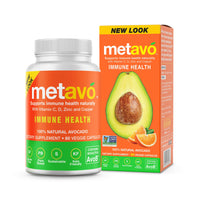
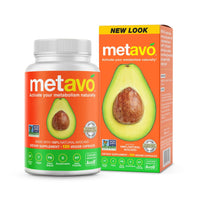





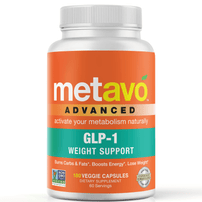


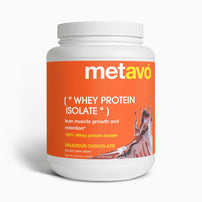
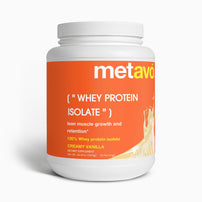
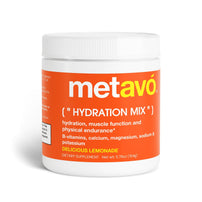
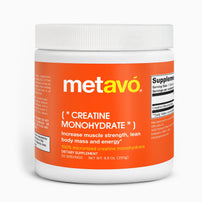
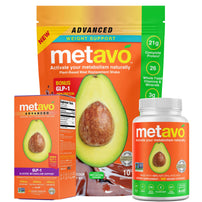
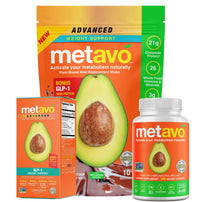
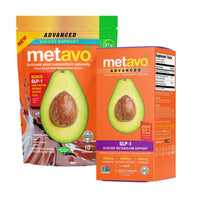
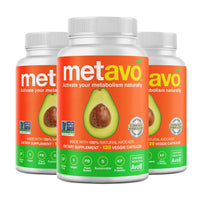




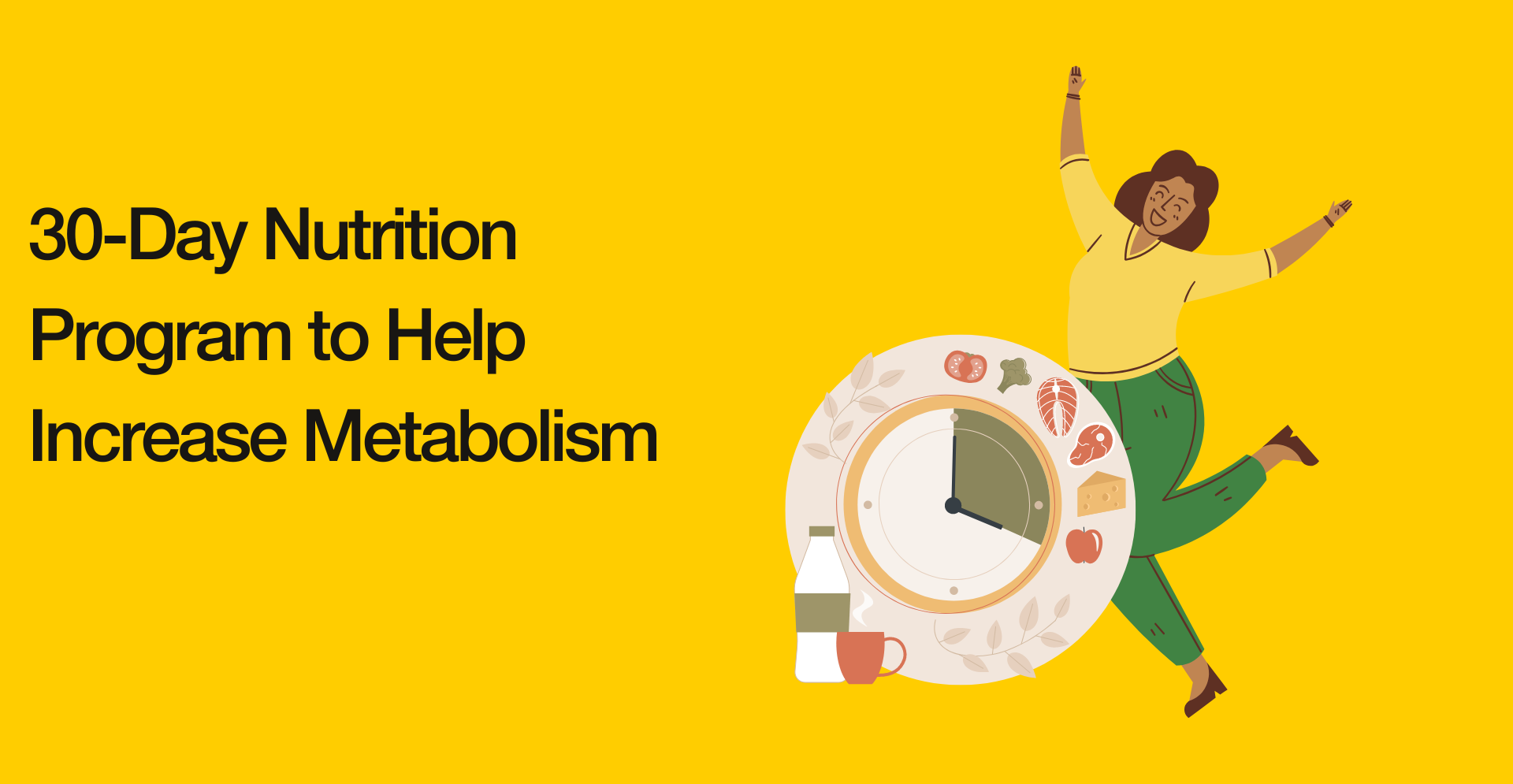
Leave a comment
This site is protected by hCaptcha and the hCaptcha Privacy Policy and Terms of Service apply.